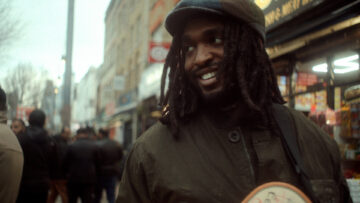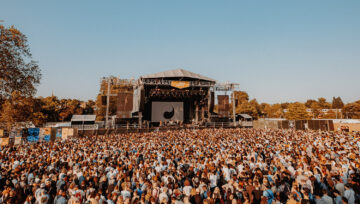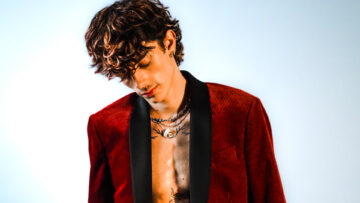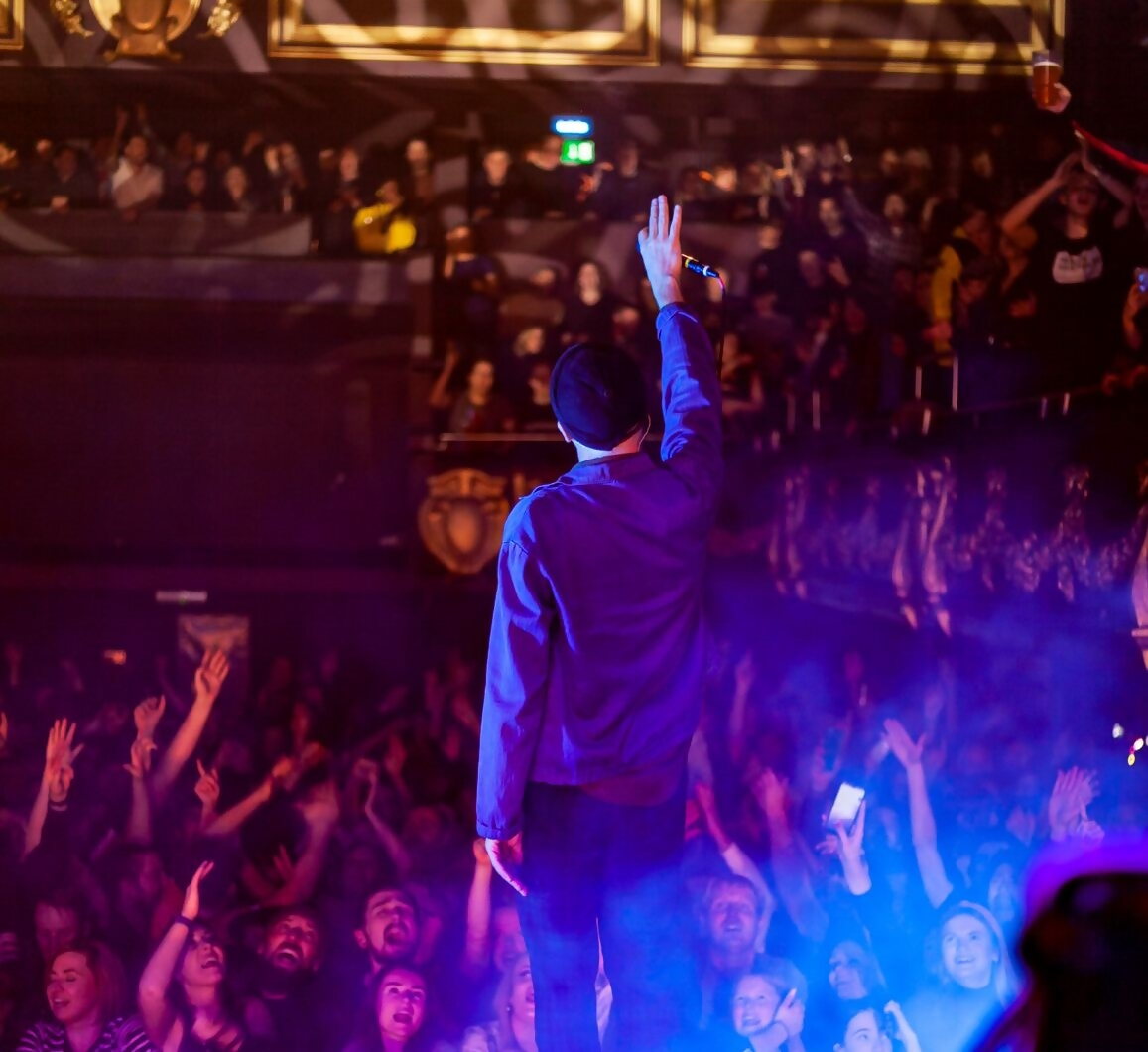
Few bands from the post-2000s era can foster a tradition quite like the annual Twang Christmas gigs. For more than a decade, the Birmingham band have been delighting fans nationwide in these special party season shows. This year the band have decided to focus on two hometown dates prefigured by one in Bath (you can cop tickets here, the first date is sold out).
Music has changed immeasurably since the digital revolution screeched into fifth gear in the early 2010s. As such, listening behaviour became much more personalised but nevertheless more fractured. The impact on culture was unprecedented. The Twang’s ascent to prominence in 2007, with the release of Love It When I Feel Like This, was one of the last waves of shared popularity before that final leap into online streaming and social media changed the face of music, more than any art medium.
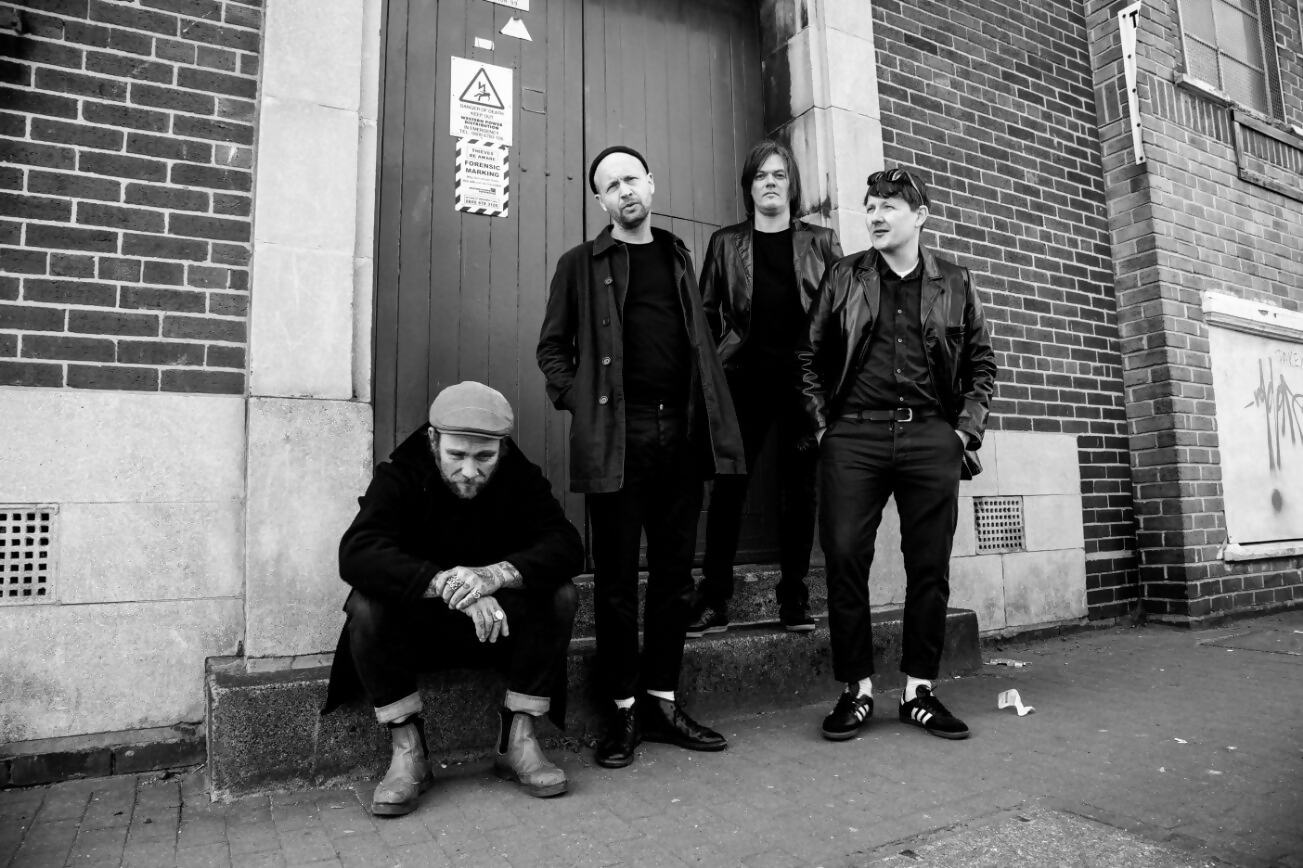
But the question still lingers: where have all the bands gone? Sure, plenty of groups are still making music and doing it very well, but where is the universal popularity and buzz around bands like there were a generation ago? This is the first question I want to put to Phil. I know many others are thinking the same thing.
Phil Etheridge: It became frowned upon to be ‘a lad’. There’s no easier way to say it. I hated lad culture. I shied away so much from it. True, we were normal lads, but we weren’t rough or violent. We were into clothes and making music. Obviously, we enjoyed getting high because that was part of the dream and what we liked to do.
But it did become frowned upon to be a normal lad who goes to work listening to the Stone Roses. People started rolling their eyes and thinking, ‘ah, it’s them dickheads!’ and started grouping those types with people who might have appeared like that but behaved in a completely different way. I stopped wearing Adidas when I started to shy away from it all even more, but by trying to change the message, you end up alienating the people that liked you in the first place.
I sit on the fence about it now. My brothers were both real indie kids and went to grammar school. Super-cool, cardigan-wearing, grungy skaters listening to The Smiths and Ned’s Atomic Dustbin, but then I went to a comp, stopped skating, and ended up hanging out with a load of toe-rags, really.
But great bands bring both of those things together. The last I can think of that did it was The Streets. I remember back in 2001, standing in a gig in the old Dale End Academy with a load of students and thinking, ‘Fuckin’ hell man, this is the band I want!’ but that’s what great bands do. It’s what Oasis did, what the Roses did, and what the Mondays did. I know we never quite managed to do it, but you just have to accept that.
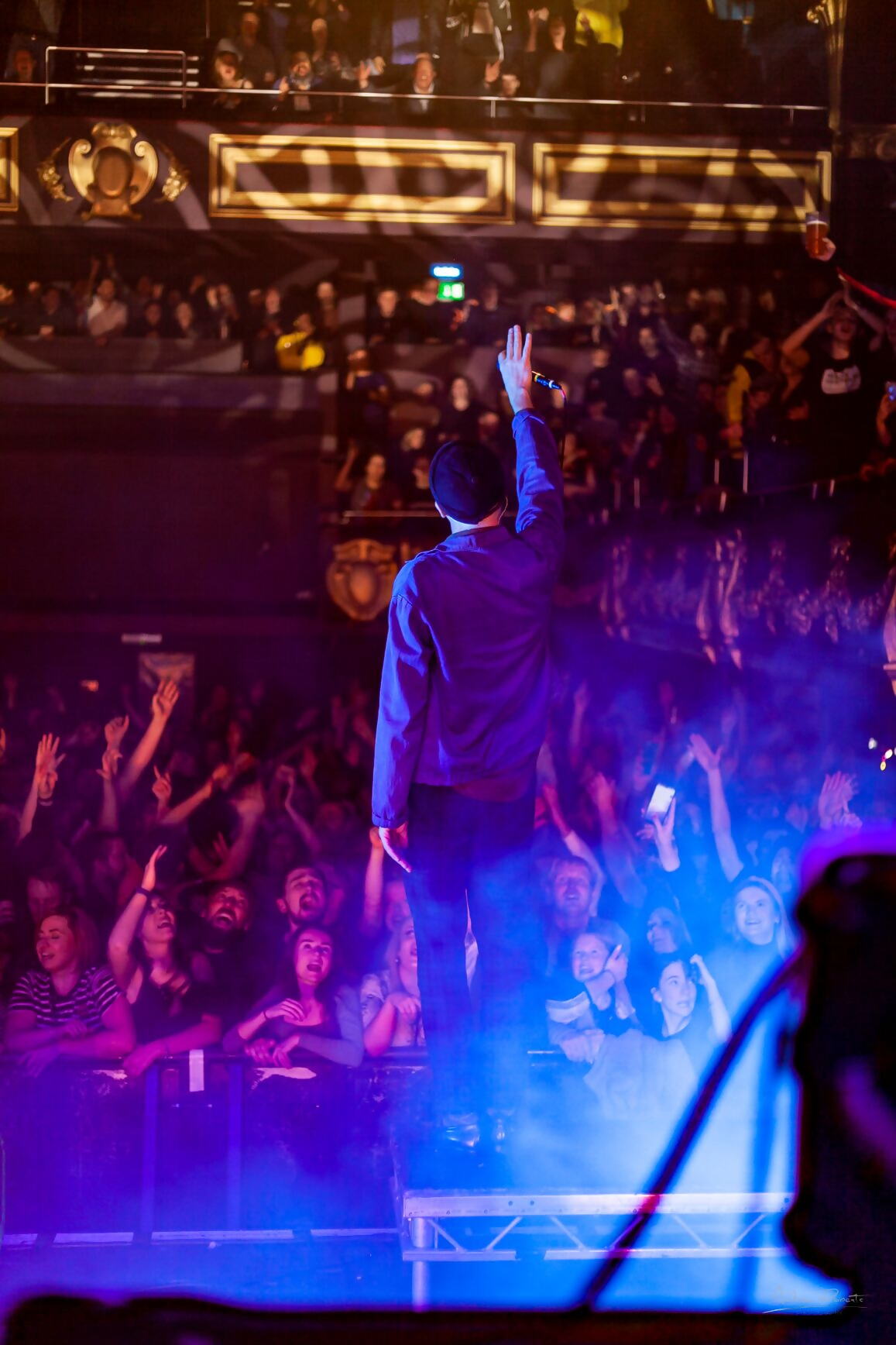
Much of what you described has seen a resurgence in Australia with Aussie bands like Sticky Fingers, DMA’s, Ocean Alley, and Bootleg Rascals. What’s your take on those groups?
Phil: DMA’s sing ballads. When I hear a new DMA’s song, I think it’s an acoustic guitar and a young girl away from being a cheesy pop song, but then again, every Oasis song could have been a Take That song – there was a very fine line! I like Sticky Fingers. And I like Amyl and the Sniffers as well.
View this post on Instagram
You mentioned The Streets; how did that scene come about, and what was it like in Birmingham in the early 2000s?
Phil: I can’t deny that The Streets changed everything. They even changed the way that Arctic Monkeys wrote. The skaghead Libertines scene, although I love that band, didn’t really appeal to me as Skinner did. I found out later that we used to go to the same clubs and were into the same house music.
In 1995 the Steering Wheel was the best club in Brum; they used to put this night on a Friday called SLAG which stood for Straights, Lesbians and Gays. We went every week for years, and all that dancing was a big influence, but my brothers were bringing home Oasis records when they first came out, and I was secretly listening to that stuff at home.
What other mediums have influenced your work over the years?
Phil: Jon Watkins, who I write with, is a real film head. I always used to take the piss out of him because he used to say his favourite film was Rear Window, and I thought, ‘Fuck OFF can it be Rear Window! It must be Crocodile Dundee or something’.
But it’s all mainly just other music that influenced us. I love piano house, I do, and I loved Happy Hardcore; it was a big influence. You can be going hard for a couple of minutes, and then suddenly, this bit of beauty and sun just breaks through the cloud at that moment. I love it. So that’s what we do when we’re always trying to get that key change in a song, to feel like we’re lifting everyone up.
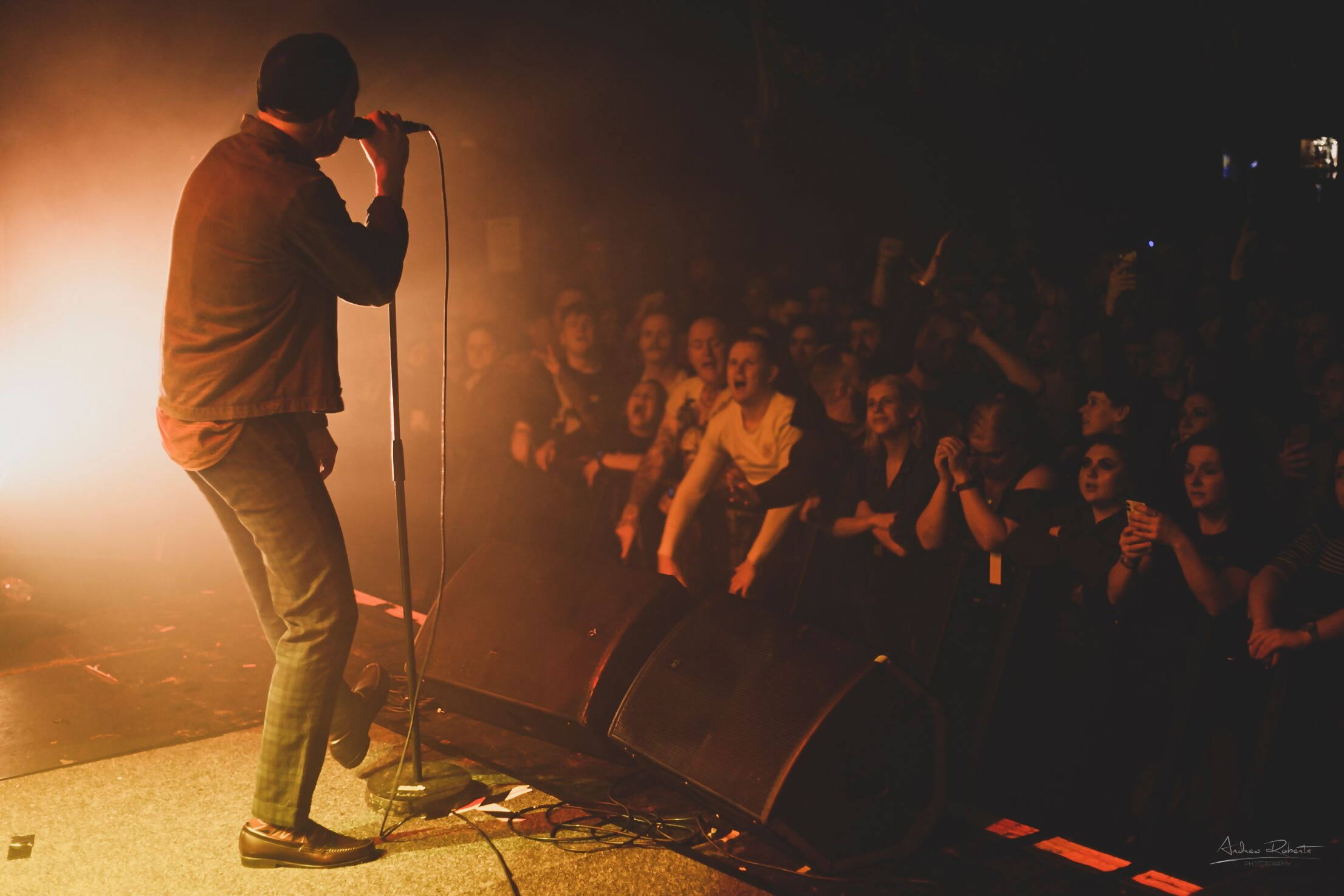
the twang live (2)
How has your songwriting and approach to music changed since you first started?
I miss those times. We were so naive and so shit, but so great as well. We didn’t sound like anyone else and would just shout from the heart. I always had anxiety growing up, which was probably induced by what I was doing on the weekends, to be honest. The only time I ever felt well was rehearsing and jamming with the lads – or watching American Pie. It was when I realised I wasn’t gonna die and that it was my place. That and being in a vintage shop in foreign cities were my two happy places.
But in the last few years, it just became a place I thought I shouldn’t be in. I thought how I shouldn’t just be sitting there surrounded by fucking cigarette nubs and on the second bottle of wine. I started feeling guilty over being there.
I don’t want to be that old drunk in the pub telling people, ‘I was in The Twang!’. I’m really conscious of that. I think about it a lot. Sometimes I feel that I get noticed more because we weren’t that big. It’s weird, we’re popular to some people, but I’m conscious of being that washed-up has-been that was once in this band but couldn’t cope with not being 25 anymore.
There’s beauty in getting old, and you can still find happiness; it’s not in a line or in a bottle of rum. Because it’s gonna happen to all of us, getting old and getting on. You begin to realise what really matters: ‘avin a laugh. ‘Avin a laugh and travelling, seeing new places and sitting in the sun rather than stressing out about trying to be rich. It’s something I’d always say about being in a band, too; it’s the most fragile job you can have. But it never mattered anyway because life’s fragile too.
The Twang will be playing in Bath on Friday 16th December (tickets available here) and in Birmingham on Saturday 17th and Sunday 18th (tickets available here).

